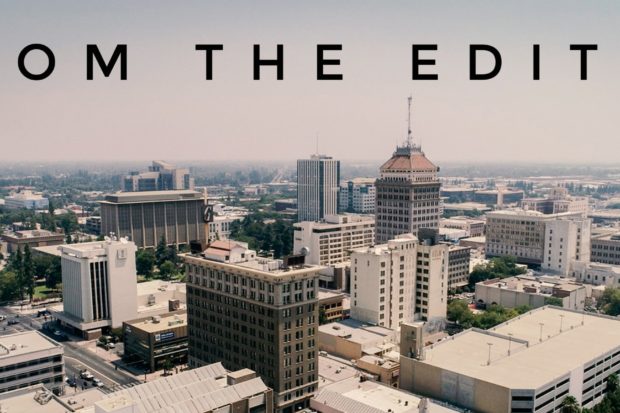
The Valley will be a better place… But how soon?
“Here in Fresno, nothing happens,” we heard over and over in reference to the sociopolitical stillness of the region. Rural communities used to be statics. Governments invest little or only on agriculture-related businesses. Landowners don’t want changes and rely on conservative politicians to protect their interests.
There were several projects to divide California in three, four or more petit états. And in those projects, the Central Valley would become isolated, “independent.” The dream of local conservatives is to separate the Valley, to take it away from the “bad influence” of urban areas. That’s why they oppose the high-speed rail project, because it would help us communicate faster and better with those areas.
But life and society are not static. They move.
Even if they deny it, climate change is pushing growers to adjust to it, as well as to the revolving water crisis. These days, some experts are questioning traditional agriculture and particularly corporate agribusiness for their effects on food quality, the soil and the excessive use of water.
A few days ago, Governor Gavin Newsom announced a $10 million investment in education and the opening of offices in Fresno and Riverside, a clear message that his administration will focus more than the previous ones on reducing the inequality between the coast and inland.
Moreover, Newsom announced another $23 million is going as philanthropy to nonprofit local organizations, with the funds coming from several foundations. Newsom also expressed his commitment to the high-speed rail project, which due to excessive costs will not cover the Los Angeles–San Francisco route but rather the shorter Bakersfield–Merced one. Despite this limitation, this train will help residents’ mobility without the use of cars.
The lack of more and better public transportation in the Valley, with our overcrowded highways and cities getting busier day by day, turns it into one of the main social concerns.
While the Governor was delivering this good news, conservatives were gathering signatures to recall him.
Nevertheless, these financial incentives won’t resolve the most important issues of the Central Valley, which include huge social and economic inequality and the lack of good jobs.
However, even here we’ve got some good news—or good rumors. It seems that several tech businesses from Northern California are considering diverting part of their production to the Central Valley. These are not distribution centers to which the City of Fresno will donate 10 years of tax revenues to lure them, as it did with Amazon—a company that is also contributing to the contamination of our air.
Let’s see if Fresno and other cities in the Valley are capable of negotiating with those companies without compromising tax revenues and workers’ well-being.
These changes are slow but are reflexed—and supported by—a new generation of elected officials and candidates who are challenging the traditional status quo of the Valley.
Could this be enough to end the historic “conservative nap” that has dominated our region for decades, prostrating us into actual deep social inequality? It could be possible with our involvement; we can’t miss the train—high speed or not—that can take us to a better society.
